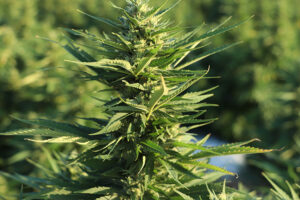Fibromyalgia is a common yet often misdiagnosed (and misunderstood) medical condition affecting the bones and muscles. There is no cure for it, which is why many sufferers seek alternative treatments, including CBD. CBD is well-known for managing pain, so it makes sense that it should also work for fibromyalgia. However, despite many anecdotes, the official literature regarding CBD as a treatment for fibromyalgia is relatively slim.
See all CBD oil benefits here.
So should you consider using CBD to treat your fibromyalgia? We take a comprehensive look at current scientific literature to find out whether or not CBD is an effective and safe treatment for this difficult condition.
What is Fibromyalgia?
Fibromyalgia is a condition that produces chronic pain. While the cause is still unknown, doctors speculate that it is rooted in how your brain processes pain signals from your nerves. Several risk factors increase your chance of getting fibromyalgia, including:
- Being a woman
- Already suffering from a painful condition
- Having a mood disorder
- Suffering from PTSD
- Other members of your family having it
The main symptoms of fibromyalgia include:
- Widespread pain that is triggered by touch on both sides of the body
- Fatigue
- Depression
- Abdominal cramping
Since there is no established diagnostic test for fibromyalgia, getting a diagnosis can take years while you and your doctor go through a battery of tests to eliminate many other conditions. Many doctors still dismiss fibromyalgia as an imaginary condition that results from stress or depression, but there is a growing body of evidence confirming that the disease is very real, bringing with it a host of health consequences.
There is currently no established cure for fibromyalgia, and doctors rely on medication and self-care to alleviate symptoms. Often, patients use a combination of occupational and physical therapy, medication (such as pain relievers), and anti-seizure drugs to manage the onset of fibromyalgia.
What is CBD?
Cannabidiol, or CBD, is one of the hundreds of cannabinoids found in cannabis plants such as marijuana and hemp. It affects the endocannabinoid system in the brain, which is responsible for managing mood and processing pain. The other well-known cannabinoid is THC, which causes the psychoactive effects of ingesting marijuana. Many scientists think that CBD has many medical benefits stemming from its effect on the endocannabinoid system.
CBD isn’t often extracted from Cannabis sativa or Cannabis indica. It is more often extracted from hemp. Hemp has much lower THC levels than marijuana plants, which means that a hemp extract will have a much higher concentration of CBD without much THC.
There are two main types of CBD extract on the market today: full-spectrum and isolate. Full-spectrum CBD products are less processed, and the extract will still contain many cannabinoids and terpenes found in the original plant extract. Some people say that these compounds have a synergistic effect, making the CBD more effective, though there is little scientific evidence to back this up. The main drawback of using full-spectrum CBD is that, since every extract is different, you can never be 100% sure of your dosage, or sure of what other compounds you’re ingesting.
A CBD isolate is a product that contains only purified CBD with no other compounds. Pure CBD is more reliable when it comes to dosing, and you don’t run the risk of ingesting potentially harmful or useless filler compounds. However, CBD isolate tends to be more expensive than full-spectrum CBD, due to the extra processing cost involved.
You can get CBD in a wide array of different forms, from edibles to vape juices and even patches. Your method of ingestion will depend on your preference and what you feel comfortable doing. Some people, especially those with respiratory issues, are advised to avoid smoking or vaping CBD as it may exacerbate existing health concerns.
Current Research
The effect of CBD and THC on pain has been well-documented in reducing chronic, non-cancer pain as well as cancer treatment-related pain. However, it is ineffective in treating rheumatoid pain, post-operative pain, or chronic abdominal pain, which makes it difficult to say whether or not CBD or cannabis would be effective in treating fibromyalgia. To date, there have been very few studies that have observed the effect of CBD, or even cannabis, on fibromyalgia.
The earliest research was a small study that described the effect of cannabis on fibromyalgia patients. The study identified 28 people with fibromyalgia who weren’t cannabis users and 28 who were, even though their cannabis use varied in both frequency and amount. The group that smoked cannabis reported less pain two hours after smoking and even experienced higher mental health scores. While not definitive, the study suggests that CBD may be effective in treating the chronic pain experienced by fibromyalgia patients.
After the initial study, two groups published two additional studies in 2019. The first group looked at the effects of cannabis on 20 women with fibromyalgia. Each patient received four cannabis varieties during the study to discover whether THC or CBD was more effective at managing pain.
One of these varieties was a placebo that contained no CBD or THC as a control. None of the treatments showed an effect greater than placebo on spontaneous or electrical pain responses, though more patients reported pain relief on the high THC/CBD variant than on placebo. 18 out of the 20 patients reported a 30% decrease in pain when using the high THC/CBD variant, while only 11 out of 20 patients reported a similar 30% decrease in pain. Surprisingly, the CBD-only variant showed little to no effect on relieving pain.
Importantly, the researchers didn’t design the study to give direct evidence for the efficacy of THC or CBD in fibromyalgia patients. Instead, they wanted to provide information for designing future clinical trials, which is why they focused on unique aspects (such as the way CBD and THC are metabolized in the body).
The second study was an observational study in which 367 fibromyalgia patients responded to a questionnaire at a specialized medical cannabis clinic. 82% of the participants were women, and the six-month follow-up response rate was 70,8%. Each participant received advice and guidance from a registered nurse on cannabis dosages, strains, and delivery methods and then built up to a median of 670 mg of cannabis per day.
After six months, the average dose was 1,000 mg per day, with 140 mg THC and 39 mg CBD. At the beginning of the study, 52.5% of participants identified their pain levels as high, and this number dropped to only 7.9% at the end of the six months. This study has several limitations, including the fact that patients used over 14 varieties of cannabis, making it difficult to identify what compound was responsible for the pain relief. Also, there was no control group to account for the placebo effect and the study relied on self-reporting with no other measure for pain response.
While CBD may not be too promising in the treatment of fibromyalgia, there is one promising study regarding the use of THC for managing the symptoms of fibromyalgia. The study was a small, double-blind, placebo-controlled study of 40 patients with fibromyalgia. Instead of CBD, the researchers used nabilone, which is a THC analog that has been approved by the FDA to treat chemotherapy-induced nausea.
In this study, patients were divided into two groups, one that received the nabilone and the other that received a placebo. After four weeks, patients assessed their pain on the visual analog scale and the Fibromyalgia Impact Questionnaire. The nabilone-treated group showed lower pain, lessened anxiety, and in their FIQ scores, while the scores of the placebo group remained unchanged. Also, the treatment group reported more side effects than their placebo counterparts. The advantage of using nabilone is that it has already been evaluated in previous clinical trials for safety, so future clinical trials are easier to conduct as well.
Evidence from previous studies shows that THC and CBD work better together than individually when it comes to managing pain, and this may likely be the case for fibromyalgia as well.
Conclusion
There is evidence that THC and CBD are effective at managing certain types of chronic pain, but more research is needed. At the moment, the FDA hasn’t approved any CBD-based medications for the treatment of fibromyalgia and probably won’t do so until there is more concrete evidence available. Unfortunately, the few studies that look at the effect of CBD on fibromyalgia are inconclusive due to small data sets, poor results, and inadequate study design.
Until more evidence comes in, there’s very little reason for you to try CBD for your fibromyalgia. If you decide to try it, be sure to consult with your doctor first. They’ll be able to advise you on safe doses and identify any complications or harmful interactions with your current medication.
FAQs on CBD and Fibromyalgia
Question: Can CBD help with Fibromyalgia?
Answer: It is difficult to say whether or not CBD or cannabis would be effective in treating fibromyalgia. To date, there have been very few studies that have observed the effect of CBD, or even cannabis, on fibromyalgia.
Question: What is Fibromyalgia?
Answer: Fibromyalgia is a condition that produces chronic pain. While the cause is still unknown, doctors speculate that it is rooted in how your brain processes pain signals from your nerves.
Question: What are the main symptoms of Fibromyalgia?
Answer: The main symptoms of fibromyalgia are widespread pain, fatigue, depression, and abdominal cramping.
Question: Is there any research on the effects of CBD oil in Fibromyalgia?
Answer: Currently, there are only a few research studies regarding the effects of CBD oil on Fibromyalgia. As of this writing, there are three confirmed studies on how CBD oil relates to Fibromyalgia.






